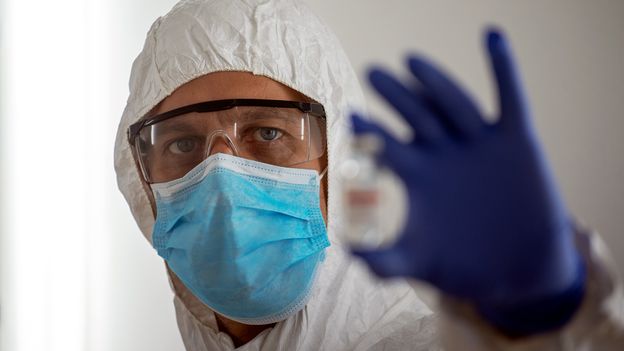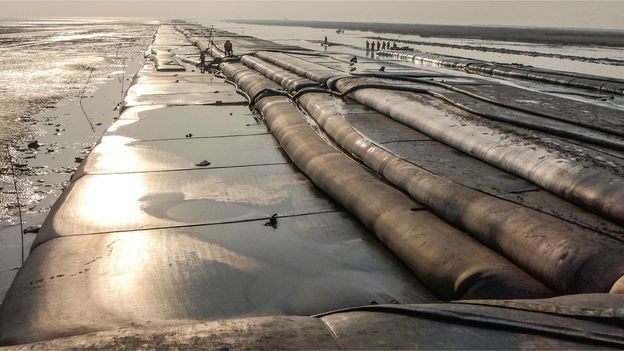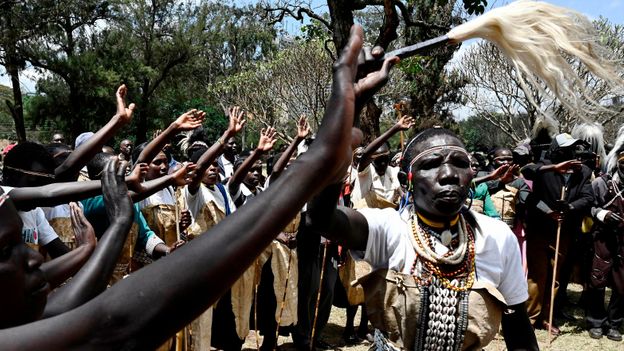“People are very keen on at the moment on that graph in the Pfizer paper in the New England Journal of Medicine where they show that there must be some kind of de facto benefit as early as something like day 14,” says Altmann. “It’s the one where the curve for the placebo group and the vaccine group completely diverge, and cases start taking off in the placebo group. But obviously that’s not measuring an immune response directly – it’s using quite a crude measure of how many people have been infected.” Altmann explains that he wouldn’t advise anyone to consider themself safe 14 days after their first dose of the vaccine. “The graph is just a way of saying ‘something is happening’,” he says.
In a more recent development, an Israeli academic who coordinated the country’s Covid-19 response – Professor Nachman Ash – has claimed that a single dose of the vaccine is not as effective as Pfizer originally estimated. However, the comments have been widely criticised.
There are a number of reasons that it is inappropriate to compare the research, which was conducted by the health organisation Clalit, with the Pfizer study. For one, the Israeli study found that a single dose of the vaccine reduced the number of people testing positive for the virus, i.e. being infected, by 33%, while the Pfizer paper suggested that it would prevent 52% from developing symptoms – they looked at two different things.
In addition, the data from Clalit has not been made available, or peer-reviewed. It also involved examining the impact of the vaccine just two weeks after people had received it – considered too early to see an immune response – rather than three, as in the Pfizer study. Finally, the research was not a clinical trial, but rather an observational study, which means the results should be viewed with caution.
Oxford-AstraZeneca
For the Oxford-AstraZeneca vaccine, things are a bit different. In a paper published in January, the authors explain that the vaccine offers protection of 64.1% after at least one standard dose. This compares to 70.4% if you’ve had two full doses, or – oddly – 90% in people who have had one half dose followed by one full dose.
A month later, AstraZeneca revealed the results of a first analysis of their phase III trial data in a press release. Starting from 22 days after the first dose, the vaccine provided 70% protection against mild or moderate illness and 100% against severe disease, hospitalisation and death.
Because the phase three trial included two gaps between the first and the second dose – including one of six weeks and a longer one of 12 weeks – it’s possible to say with more certainty that the first dose can continue to provide some protection for at least a few months before the booster shot.
Moderna
According to a document the company submitted to the FDA, the Moderna vaccine can provide 80.2% protection after one dose, compared to 95.6% after the second (in people aged 18 to 65 – it’s 86.4% in those over 65). As with the Pfizer vaccine, all participants in the phase three trial received two doses of the vaccine or a placebo within a single set time period – in this case, 28 days – so it’s not yet known whether the immunity from a single vaccine would continue, or drop off after this stage.
Sinovac
The CoronaVac vaccine was developed by Sinovac, a biopharmaceutical company based in Beijing, China. This version is unusual as it has been trialled independently in several countries – all of which have produced different results.
According to researchers in Turkey, the vaccine is 91.25% protective, while scientists in Indonesia have said that it’s 65.3% effective, and the Butantan Institute in São Paulo, Brazil recently announced that the vaccine prevents 50.4% of people from developing symptoms. At the moment, no one has released data on the efficacy of a single dose – these figures only apply to two doses, spaced 14 days apart.
The results have been viewed with some scepticism, because they were published via press releases, instead of – as would normally be the case – in a peer-reviewed journal. Without access to more information about the trial methods and the data that was collected, it’s harder for scientists to make their own assessments of the results’ validity.
Sinopharm
In all, there are five Chinese vaccines at various stages of development.
Another is “BBIBP-CorV”, by the state-owned company Sinopharm, based in Shanghai. Officials in the country recently announced that this version is 79% effective after two doses – though by then, it had already been distributed to nearly a million people. This estimate has not been verified by the international community, because the underlying data and methods for its trial have not been made publicly available. It’s not yet clear how protective it might be after a single dose.
Outside China, the vaccine is currently being tested all over the world, and has been approved in Bahrain, Egypt, Jordan, the Seychelles, and the United Arab Emirates. The UAE recently became the first to rate its efficacy, claiming via a press release that it is 86% effective.











